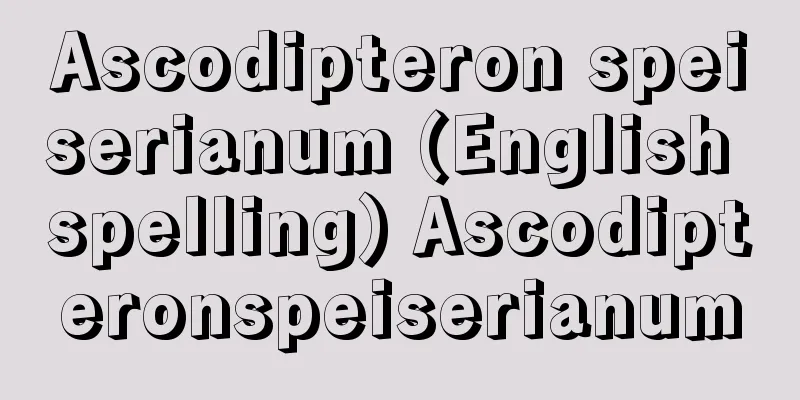Light source

|
A general term for objects that emit light. It includes a wide variety of things, from the sun and living things such as fireflies to candles, incandescent light bulbs, fluorescent lamps, and laser emitters. However, when we say light source, it usually refers to something that is artificially created. When classified by the principle phenomenon of light emission, it can be broadly divided into two: thermal radiation, which occurs when an object is heated to a high temperature and emits light, and luminescence, which occurs when an object emits light by changing the energy state of atoms or molecules, regardless of heat or temperature. If each phenomenon is further classified into more detailed categories, it becomes like , and each row in the final "Types of light source" is linked to the light source name. For example, high-pressure sodium lamps are a type of high-pressure discharge lamp, but their light emission principle is based on luminescence called discharge emission (electroluminescence), while the light of an incandescent light bulb is a type of incandescent emission based on thermal radiation. [Akio Obara] Generally, thermal radiation produces a continuous spectrum, which produces light with good color rendering, but it also produces invisible infrared rays at the same time, which makes it less efficient. In contrast, luminescence produces light of a specific wavelength, so by skillfully adjusting the components of the light-emitting body, it is possible to produce light of the required wavelength in a concentrated manner, resulting in high efficiency. On the other hand, because visible light is concentrated at a specific wavelength, it is not possible to reproduce all colors correctly, and color rendering tends to be lower than that of thermal radiation. [Makoto Bessho] [Reference] | |©Shogakukan "> Classification of light sources (Table) ©Shogakukan "> Xenon lamp structure ©Shogakukan "> Fluorescent lamp structure and lighting circuit ©Shogakukan "> Mercury lamp structure ©Shogakukan "> Light bulb structure and filament ©Shogakukan "> Sodium lamp structure ©Shogakukan "> Neon tube structure ©Shogakukan "> The structure of a neon glow lamp ©Shogakukan "> Main types and structures of halogen bulbs ©Takashi Aoki Metal halide lamp structure Source: Shogakukan Encyclopedia Nipponica About Encyclopedia Nipponica Information | Legend |
|
光を発生する物体の総称。太陽をはじめ、ホタルなどの生物から、ろうそく、白熱電球、蛍光ランプ、レーザー発光体などまで多種多様のものが含まれる。ただし、普通、光源という場合は、人工的につくられたものをさすことが多い。発光の原理現象によって分類すると、物体が高温度に加熱されて発光する熱放射と、熱や温度に関係なく、原子や分子のエネルギー状態の変換によって発光するルミネセンスとの二つに大別することができる。それぞれの現象をさらに細かく分類すると、のようになって、最終の「光源の種類」に示した各行の光源名と結び付く。たとえば、高圧ナトリウムランプは高圧放電ランプの一種であるが、その発光原理は放電発光(電気ルミネセンス)というルミネセンスに基づくものであり、白熱電球の光は白熱発光の一種で熱放射に基づくものである。 [小原章男] 一般的に、熱放射では連続スペクトルが発生するため、演色性のよい光が得られるが、目に見えない赤外線も同時に発生するため、その分効率が低くなるという特徴がある。これに対してルミネセンスでは、特定の波長の光が発生するため、発光体の成分などをうまく調整することによって必要な波長の光を集中的に発生させることが可能となり、高い効率を得ることができる。その反面、可視域の発光が特定の波長に集中するため、すべての色を正しく再現するわけにはいかず、熱放射に比べて演色性は低くなる傾向がある。 [別所 誠] [参照項目] | |©Shogakukan"> 光源の分類〔表〕 ©Shogakukan"> キセノンランプの構造 ©Shogakukan"> 蛍光灯の構造と点灯回路 ©Shogakukan"> 水銀ランプの構造 ©Shogakukan"> 電球の構造とフィラメント ©Shogakukan"> ナトリウムランプの構造 ©Shogakukan"> ネオン管の構造 ©Shogakukan"> ネオングローランプの構造 ©Shogakukan"> ハロゲン電球のおもな種類と構造 ©青木 隆"> メタルハライドランプの構造 出典 小学館 日本大百科全書(ニッポニカ)日本大百科全書(ニッポニカ)について 情報 | 凡例 |
<<: Antigen - Kougen (English spelling) antigen
Recommend
Lower part - Kagen
One way of looking at the calendar. In the zodiac ...
《Seaweed》 - Amano Mok
...Since ancient times, this word has been widely...
Pillar
A vertical member that supports the load of roofs...
α-Pinene - Alpha pinene
...It is a colorless, fluid liquid with a distinc...
Colisium - Colisium
In 1911, a looped string-like object was discover...
Clearing contract
A type of trading method on an exchange. It is co...
Omaezaki Port
A port in Shizuoka Prefecture. Located almost in t...
Nae-mul-wang (English spelling)
?‐401? King of Silla, Korea. Reigned from about 35...
Shoichi Kimura
1915-1986 A Russian literature scholar and Slavic...
Fourdrinier, S.
… Meanwhile, paper was still pressed by hand, but...
The Hokkaido Shimbun Press
The Hokkaido Shimbun newspaper, headquartered in ...
Brindley, J.
…English aristocrat. Aiming to develop coal on hi...
Village head - Gocho
〘Noun〙① Under the ritsuryo system, an official in ...
Culture and Anarchy
This is a masterpiece of social commentary by Brit...
Ouyang Orandai
…His son, Ouyang Tong (?-691, pen name Tongshi), ...









